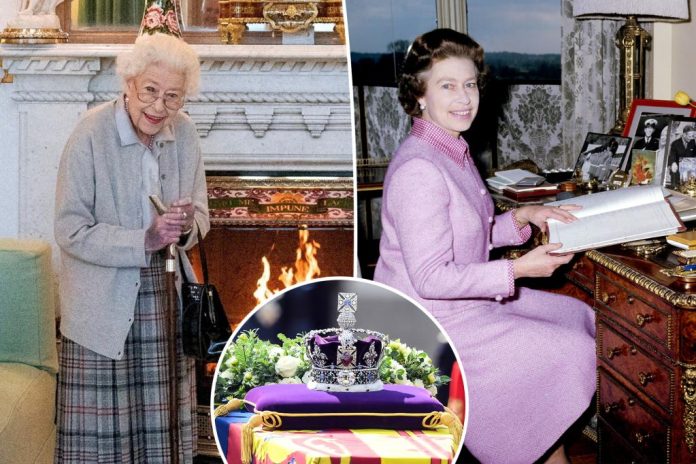Queen Elizabeth II’s final diary entry, written just two days before her death, has been revealed.
During her record-breaking 70-year reign, the beloved royal — who died in Sept. 2022 at age 96 — kept a private diary to jot down key events in her life throughout the years.
She carried that tradition through to her final days.
Royal biographer Robert Hardman discovered Her Late Majesty’s handwritten entries while researching updated chapters for his book about King Charles.
According to the author, the late monarch’s final entry was made at Balmoral, where she died on Sept. 8, two days after meeting Prime Minister Liz Truss, who was new to the role at the time.
In her diary, she recorded that her private secretary, Edward Young, had come to see her. She also wrote down some highlights about swearing in new Privy Council members.
“It transpires that she was still writing it at Balmoral two days before her death,” Hardman wrote. “Her last entry was as factual and practical as ever.”
“It could have been describing another normal working day starting in the usual way — ‘Edward came to see me’ — as she noted the arrangements which her private secretary, Sir Edward Young, had made for the swearing-in of the new ministers of the Truss administration,” he added.
The late queen’s journal recorded her activities, rather than her thoughts and feelings, Hardman adds.
Elizabeth famously once told society diarist Kenneth Rose, “I have no time to record conversations, only events.”
Queen Elizabeth II was not the only monarch who kept a handwritten journal during her lengthy reign.
Queen Victoria, who died in 1901, wrote over 60 million words in various dairies she had kept for nearly 70 years.
Elizabeth took inspiration from her father, King George V, who also kept a diary during his life.
What’s more, King Charles has followed suit, Hardman notes.
A senior courtier told The Telegraph that while the monarch, 75, “doesn’t write great narrative diaries like he used to,” he does “scribble down his recollections and reflections” of the day.
Still, the king’s writing style is “not quite as self-analytical, humorous and readable as the journal he kept as a prince.”
article credit












